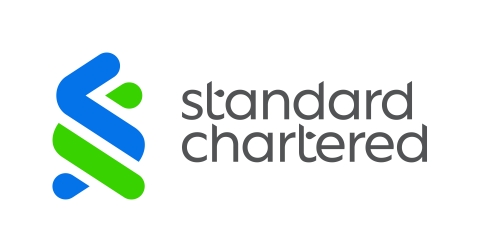U.S. Companies Bullish on Global Expansion, According to Standard Chartered
U.S. Companies Bullish on Global Expansion, According to Standard Chartered
Asia continues to be a priority with Africa and the Middle East gaining interest
NEW YORK--(BUSINESS WIRE)--Despite ongoing uncertainties in the current operating climate and varied rates of economic recovery from the COVID-19 pandemic, a majority of U.S. companies expect an increase in global expansion over the next 6-12 months, according to the latest Standard Chartered Borderless Business Study.
Recognizing the ongoing value in conducting business globally, 49% of U.S. companies surveyed saw their best growth opportunities outside of their home region, compared to 35% in June 2020. Outside of North America, Europe has become a more important growth target for U.S. companies. 52% now identify as Europe as their most important region for outbound investment. This is followed by Asia, which continues to be identified as a major growth market. Over 85% of U.S. companies surveyed are already conducting or considering a wide range of activities, including sourcing, exporting, and manufacturing. Countries like Japan, China, Australia, and India drive the most interest.
In addition to Asia (42%), responses also indicated an increased focus on Africa (15%) and the Middle East (37%) given their rich resources and high potential consumer bases. In Africa, it is unsurprising that South Africa, Algeria, Egypt, and Nigeria are the primary growth targets, and the three top oil-producing nations – UAE, Saudi Arabia and Qatar – are the primary focus for U.S. businesses in the Middle East region.
The survey also explored companies’ concerns and challenges when expanding internationally.
Top barriers to global expansion
The most significant challenges highlighted by the U.S. businesses is understanding local regulations (41%).
Other challenges include:
- Building relationship with suppliers and adapting supply chain logistics (19%);
- Sourcing funding and managing liquidity (10%) and managing FX or currency risk (10%).
Top liquidity challenges
When looking at liquidity issues, 54% of U.S. respondents believed continued access to existing credit facilities or meeting increased collateral requirements to be the most difficult challenge.
Other challenges include:
- The inability to rapidly mobilize liquidity (50%);
- Supply chain failure or interruption (46%).
“In today’s global economy, overseas expansion is a necessity and U.S. companies are looking to the rest of 2021 with increased confidence,” said Jeremy Amias, Vice Chair at Standard Chartered Americas. “As international expansion evolves, we expect that understanding regulations and closing the knowledge gap to maximize the growth potential of these regions will remain a key point to address in U.S. companies’ international growth story.”
Note to Editors
About the Borderless Business Study
Conducted between November and December 2020, over 1,000 CFOs and senior treasury professionals of companies with a turnover exceeding $500m located in USA, UK, Germany and France took part in the survey.
- Each country was equally represented with 25% of respondents.
- 50% of respondents represented companies with a turnover of $500m - $1bn; the remaining 50% represented companies with a turnover exceeding $1bn.
- The technology sector comprised 16% of responses. Thereafter, other industry sectors' representation varied between 6-8%. Financial services were excluded from the survey.
Standard Chartered
We are a leading international banking group, with a presence in 59 of the world’s most dynamic markets, and serving clients in a further 85. Our purpose is to drive commerce and prosperity through our unique diversity, and our heritage and values are expressed in our brand promise, Here for good.
Our history in the U.S. dates back to 1902, and we are currently present in eight locations throughout the Americas. Our Americas franchise focuses on financial institutions and select corporates and plays a key role in facilitating trade and investment flows between the Americas and Asia, Africa, and the Middle East.
Standard Chartered PLC is listed on the London and Hong Kong Stock Exchanges.
For more stories and expert opinions please visit Insights at sc.com. Follow Standard Chartered on Twitter, LinkedIn, Instagram and Facebook.
Contacts
Chris Teo
Head of Corporate & Business Communications, Americas
Standard Chartered Bank
Tel: +1 212 667 0446
Email: Chris.Teo@sc.com
Sammi He
Communications Manager
Corporate Affairs, Brand & Marketing, Americas
Standard Chartered Bank
Tel: +1 862 448 8488
Email: Sammi.He@sc.com
